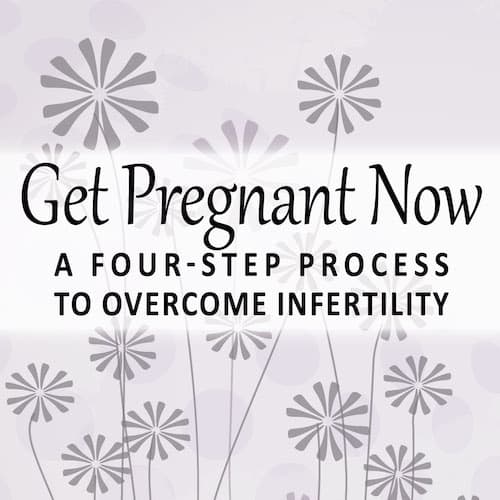Understanding Fertility
What is Infertility?
 Infertility is so much more than a medical problem. It is a complex syndrome with multitudes of causes, and suffering from infertility leads to huge emotional and practical problems as well.
Infertility is so much more than a medical problem. It is a complex syndrome with multitudes of causes, and suffering from infertility leads to huge emotional and practical problems as well.
But let’s start with the medical side of infertility. Infertility is the inability to conceive, and you get this diagnosis when a couple has tried to conceive for at least a year without success or after six months if the woman is over the age of 35. Over six million people have this diagnosis in the US, and getting the label of “infertile” can be a devastating experience.
“But we haven’t really been trying for a year.”
Medically the clock starts ticking for that six months or one year if you have any intercourse that month even if you had no idea when you were ovulating or even if the man used withdrawal. If you had intercourse without condoms, a diaphragm, IUD, or the Pill, that month counts. Often we see couples who have had unprotected sex for years yet mistakenly think they have only been “trying” for a few months. If timing and withdrawal were so good no one would need birth control!
But simply saying “you’re infertile” doesn’t really tell you why, and it doesn’t help you find a solution. It merely describes a complex syndrome in a single word.
Think of it this way… Even among young perfectly fertile couples the pregnancy rate is only about 1 in 5 (20%) each month! By age 40 that number drops to under 5% a month.
 To get pregnant, a woman needs a man with a healthy reproductive system who can make healthy sperm. She needs healthy eggs. She needs open, unblocked tubes so that the healthy sperm can reach the ready, healthy egg. The sperm needs to swim the equivalent of cross country of the USA to reach the egg, and then a sperm needs to be able to fertilize that egg. And once the miracle of fertilization occurs, the zygote (fertilized egg) needs to be able to make it out of the tube and into the uterus. And then, the embryo needs to be healthy, and the uterus needs to be healthy enough to hang onto the embryo once it successfully implants. It seems to be a miracle that any of us are here at all!
To get pregnant, a woman needs a man with a healthy reproductive system who can make healthy sperm. She needs healthy eggs. She needs open, unblocked tubes so that the healthy sperm can reach the ready, healthy egg. The sperm needs to swim the equivalent of cross country of the USA to reach the egg, and then a sperm needs to be able to fertilize that egg. And once the miracle of fertilization occurs, the zygote (fertilized egg) needs to be able to make it out of the tube and into the uterus. And then, the embryo needs to be healthy, and the uterus needs to be healthy enough to hang onto the embryo once it successfully implants. It seems to be a miracle that any of us are here at all!
This is a beautiful, complex, elaborate system of conception, and it can break down at any point along the way. Any of these things, if they don’t happen, can lead to a couple not being able to conceive in a year, and being diagnosed with infertility. But until that couple gets to the root cause of their infertility, they will not be able to overcome the problem and have a baby of their own. That’s where a good fertility specialist comes in. And this is where a determined patient, who is armed with information and a proven system of success, can get to the root causes of her infertility and overcome the barriers to pregnancy.
How do you find out if you’re infertile?
Before you can take action, you need to know if the diagnosis “infertility” applies to you. But when should you be getting tested for infertility, and what are the tests you need to get? The American Society of Reproductive Medicine (ASRM) recommends that women under 35 get testing after trying unsuccessfully to conceive for a year. After the age of 35, infertility tends to rapidly increase, so if you have been trying to get pregnant for six months and you are over 35, you should get tested right away.
But none of those time periods make sense when risk factors are present — like a flashing red light that fertility is in danger. These include irregular cycles, pelvic pain, history of sexually transmitted illnesses, fibroids, endometriosis or other reproductive disorders. If you know these are present, it’s best to be evaluated right at the start of thinking to conceive. Just two weeks or less is all that is usually needed to tell you if you have a problem of if you have the all clear to try on your own without risking wasting precious time.
Sometimes we will see something upon physical examination, or discover something during the patient interview, that will reveal the cause of the problem right up front. But oftentimes this first step isn’t enough to get to the bottom of what is causing the breakdown of the conception process.
At that point, our team will go through a group of comprehensive yet simple, painless and quick tests with you so that your doctor can make their best diagnosis of your medical situation. Such tests include an analysis of your ovulation cycle, an x-ray of the fallopian tubes and uterus, a pelvic ultrasound, sperm count, and hormonal blood tests . About 30% of infertility cases are due to female infertility, but another 30% is caused by male infertility. (the last third or so of infertility are the so-called “unexplained infertility” cases, but see our discussion of unexplained infertility to learn more).
No matter the cause of infertility, it is a disease, and therefore you can get insurance coverage for the various treatments a doctor will prescribe. Insurance at least for now is a state-by-state infrastructure, though healthcare reform will continue to change this system in ways that we cannot yet predict. Most patients in NY have coverage for the testing of infertility and some if not all treatments.
Currently fifteen states have laws mandating at least partial coverage for infertility diagnosis and treatment. Those states are Arkansas, California, Connecticut, Hawaii, Illinois, Louisiana, Maryland, Massachusetts, Montana, New Jersey, New York, Ohio, Rhode Island, Texas and West Virginia. However, the laws for each of these states vary widely, with very different coverage in each state.
Aside from state mandates, if you have employer-provided insurance and feel comfortable broaching the subject of infertility treatment with your employer’s Human Resource department, you can learn more about your insurance coverage for infertility.
We have a patient advocate who specializes in maximizing the amount that insurance will pay for treatment. You might be surprised how affordable effective infertility medical treatment can be, so don’t assume that it is too expensive and out of your financial reach to get the medical treatment you need.




